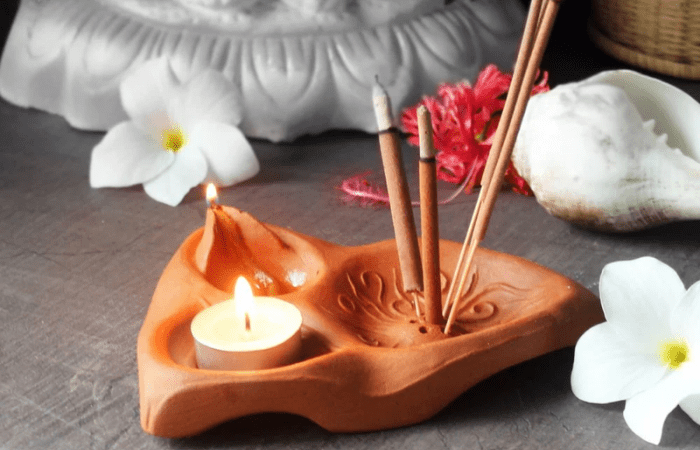We know how royal Dusshera celebrations are at this time of the year. While the excitement during such festivals is worth witnessing, we forget that nine days of grand celebration also means nine days of waste generated in almost every city in India. That is a lot!
So, this Puja season, let us ensure we switch to simple green alternatives to carry out our obligations towards Mother Nature. Whether it is the life-like idols or palatial pandals, almost everything can be created with sustainable products and ingredients.
Here are a few sustainable and hassle-free ideas you can keep in mind. Adopting such easy steps that can make a world of difference-
-
Switch to organic idol-making processes.
Traditionally, before the development of Plaster of Paris, clay was the chief element used to construct idols. It is time to go back again. While clay and soil are bio-degradable and decompose rapidly, we cannot say the same for Plaster of Paris. After immersion, it does not dissolve in water as easily. Eventually, the water's oxygen level starts falling, posing a serious risk to marine life.
-
Choose paints that are nature-made.
While painting idols, we might not be careful enough. We could use paints with toxic chemicals and metals like mercury, lead or chromium. Paints of such description are not just detrimental to skin health.
After immersion of the idol, these harmful components can also contaminate the river or lake water. If these water bodies are used for drinking purposes, it can threaten not just aquatic life, but humans too.
To avoid this, make sure that you use water-soluble and natural hues like turmeric, hibiscus or rice flour. To be safe, consider immersing idols in separate and temporary ponds rather than natural water bodies like seas or lakes.
-
Manage your lighting mindfully.
The advantages of energy-saving LED bulbs over the incandescent ones are not limited to lower bills. Given the number of lavish pandals India sees during this time, using solar-powered or energy-efficient LED lights can also help reduce carbon footprint. Furthermore, replacing disposable electric candles with terracotta lights can go a long way.
-
Use disposable and recyclable products.
Food is an integral part of the puja traditions. However, non-degradable disposables like plastic must be used as little as possible. Instead, swap plastic containers with eco-friendly and bio-degradable options like Bamboo plates, leaf-based straws and recyclable cups. For prasad distribution, use paper, cloth or jute bags.
-
Make sure your puja pandal meets the sustainability criteria.
Often, we employ large amounts of plastic and thermocol in puja pandals for construction and decoration purposes. You must be aware now that such items do not decompose. Instead, look out for creative and sustainable items for eco-friendly Dussehra decor.
For instance, adopt items like bamboo, paper and cotton to make elegant layouts. In addition to this, you can also use biological plants and flowers for indoor decorations. Since these plants are organic products, they can later be used as compost. These practices ensure a sustainable cycle while also promoting green spaces.
-
Use natural and environment-friendly incense sticks.
Incense sticks are unavoidable during Indian worship and rituals. In such a situation, try to find incense sticks made of chemical-free substances. These items are produced by using natural ingredients like essential oils and flowers. Another added benefit of environment-friendly incense sticks is that the packaging of such products is also made biodegradable.
-
Make Ravan Dahan eco-friendly.
Replicas of Ravan are packed with a good number of firecrackers for smooth burning. Such firecrackers release severely damaging smoke that causes air pollution. While celebrations cannot stop, there exist novel ways to witness Ravan Dahan. Newer and greener techniques include creating effigies with eco-friendly materials like paper. Consider spending on laser shows that play animated Ravan Dahan stories.
Final Overview
Green products are available in local markets or eco-friendly online stores. Even artisan communities that deal with eco-conscious religious products can help. Without compromising on anything, we can make mindful choices about the items we use.
By opting for easy and green options and celebrating an eco-friendly Dussehra this puja season, we can ensure the environment is not negatively affected. Eliminating the use of detrimental synthetics and embracing green items can bring us closer to achieving a more sustainable and resilient India.



Share:
Understanding the Importance of World Mental Health Day: A Comprehensive Guide
Transform Your Home with These Unique Diwali Decoration Ideas